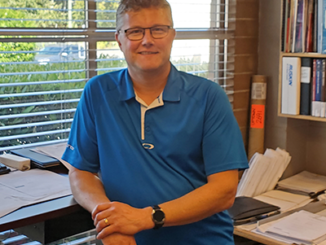

The 2018 legislative session ended on a mostly good note for SMACNA contractors and, for the first time in a number of years, it ended on time. The legislators packed a lot into the short 60-day session. The Democrats controlled both the House and Senate for the first time in five years allowing them to pass bills that had been stalled under split control. These bills included voting rights, equal pay for equal work, a ban on bump stock mechanisms, and regulation of the Internet.
Money and taxes
The Legislature got good news with the February revenue forecast. The projected $1 billion plus increase allowed the Legislature to finish funding the last part of McCleary, the education lawsuit. The money went primarily for increases in teacher salaries.
Last year the Legislature changed the property tax structure as part of a long-term solution for education funding. The Legislature did a “swap” between state and local school district property taxes. The exchange entailed the state assuming a higher property tax rate for school funding and the schools lowering their rate. But because this change is still in transition and districts have not made their adjustments, 2018 property taxes rose sharply in most areas, particularly the Puget Sound. Responding to the situation, the Legislature passed SB 6614 reducing the property tax rate in 2019 from $2.70 to $2.40 per $1,000 of assessed value.
Despite the increased revenue, Democrats in the House once again proposed a capital gains tax. HB 2967 would have imposed a seven per cent tax on long-term capital gains from the sale of real estate, stocks, and other property assets. The tax would apply only when the amount of income went above a designated income threshold. The tax would have captured the sale of businesses, causing SMACNA to oppose the measure. Many believe a capital gains tax would be a precursor to a state income tax. The bill moved out of House Finance but was not brought to the House floor for a vote.
In the Senate, the Democrats tried to pass a tax on carbon, an issue long championed by Governor Inslee. In an effort to get support, they provided generous exemptions for manufacturing and food processing businesses, as well as many fuel types. In the end the nearly $1 billion a year tax would have applied primarily to vehicle fuel, natural gas, and electricity used by business and residents. The money would have been spent on carbon reduction efforts as well as water, forest, and public transportation projects. SB 6203 did not get enough support from the slim Democrat majority to move out of the Senate. It was never considered in the House. A carbon tax initiative may be on the November ballot.
Prevailing wage and apprenticeships
A major victory for SMACNA was the passage of SB 5493. This new law will set the prevailing wage rate based on the wages and benefits in collective bargaining agreements (CBA) for geographic jurisdiction where a CBA is available. For areas where no CBA is available, the traditional survey method will be used. This is a significant and important bill for SMACNA contractors that passed with strong bi-partisan support in both houses.
HB 1673 is another new prevailing wage law. It requires a person within each contracting firm to be trained on prevailing wage compliance in order to be eligible for the responsible bidder list. Bidders who have completed three or more public works projects and have had a Washington business license for at least three years are exempt from the requirement. This will help with competition from out of state contractors.
Some important bills on apprenticeships passed this year. HB 1849 says general contractors may not require subcontractors to exceed their proportional apprenticeship utilization requirements in their contracts. It also requires the awarding agency to monitor contractor and subcontractor apprenticeship hours and report noncompliance to LNI. HB 2685 will promote registered pre- apprenticeship opportunities to high school students. SB 6126 will, for the first time, require formal apprenticeship training to become a 01 electrician.
Employment issues
Reflecting the growing concern over sexual harassment, the Legislature passed two laws on the subject. SB 5996 prohibits an employer from requiring an employee to sign a nondisclosure agreement dealing with sexual harassment or sexual assault as a condition of employment. SB 6471 convenes a work group that will develop model politics and best practices for employers concerning sexual harassment.
After several years of trying, the Legislature passed a landmark bill in the employment arena—the Equal Pay Act. HB 1506 prohibits discrimination in “similarly employed” jobs and in career advancement opportunities based on gender. This is the first time the state wage law has been updated many decades. Although several changes were made to the bill, many businesses still opposed the bill because of the four-year look back and other enforcement provisions.
HB 1298 is another law that has been around a number of sessions and passed this year. It would prohibit an employer from including any question on an application or inquiring into an applicant’s criminal background until after the employer initially determines that the applicant is otherwise qualified for the position (meets the basic criteria for the position as advertised or as listed in the job description). Advertisements for job openings cannot exclude people with criminal records from applying. Once the employer has initially determined the applicant is otherwise qualified, the employer may ask about or obtain information about criminal records. SMACNA contractors who need workers eligible to go into facilities that restrict persons with criminal backgrounds can use the second part of the hiring process to screen for this requirement.
If you have questions about any of these new laws, please contact the SMACNA offices.
SMACNA will keep you updated on legislative issues as they evolve during session. If you have questions, please contact the SMACNA office.



